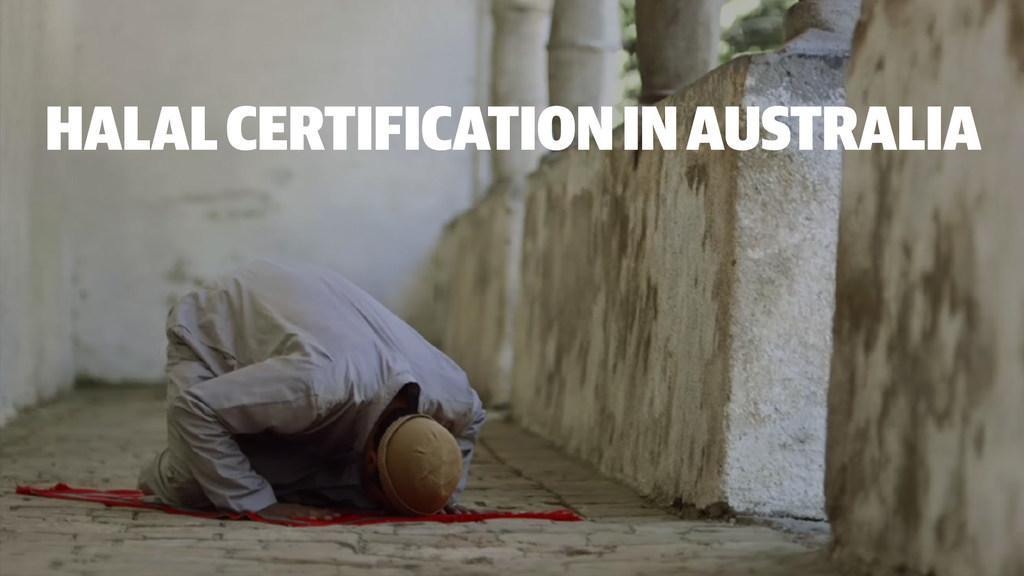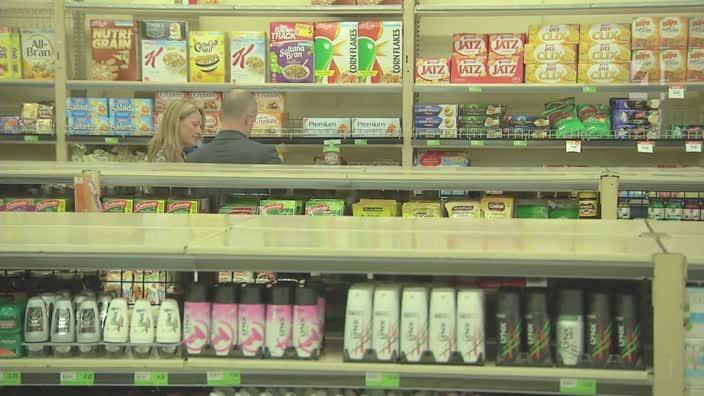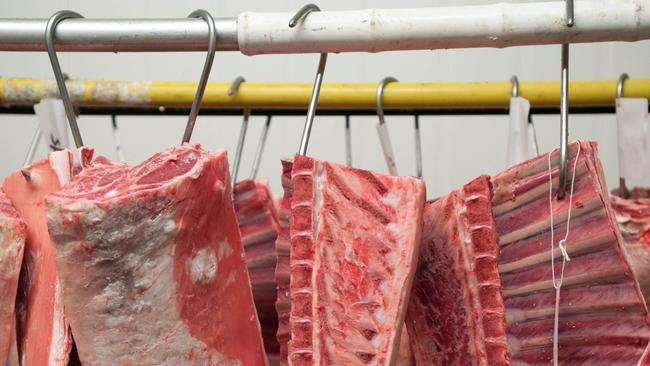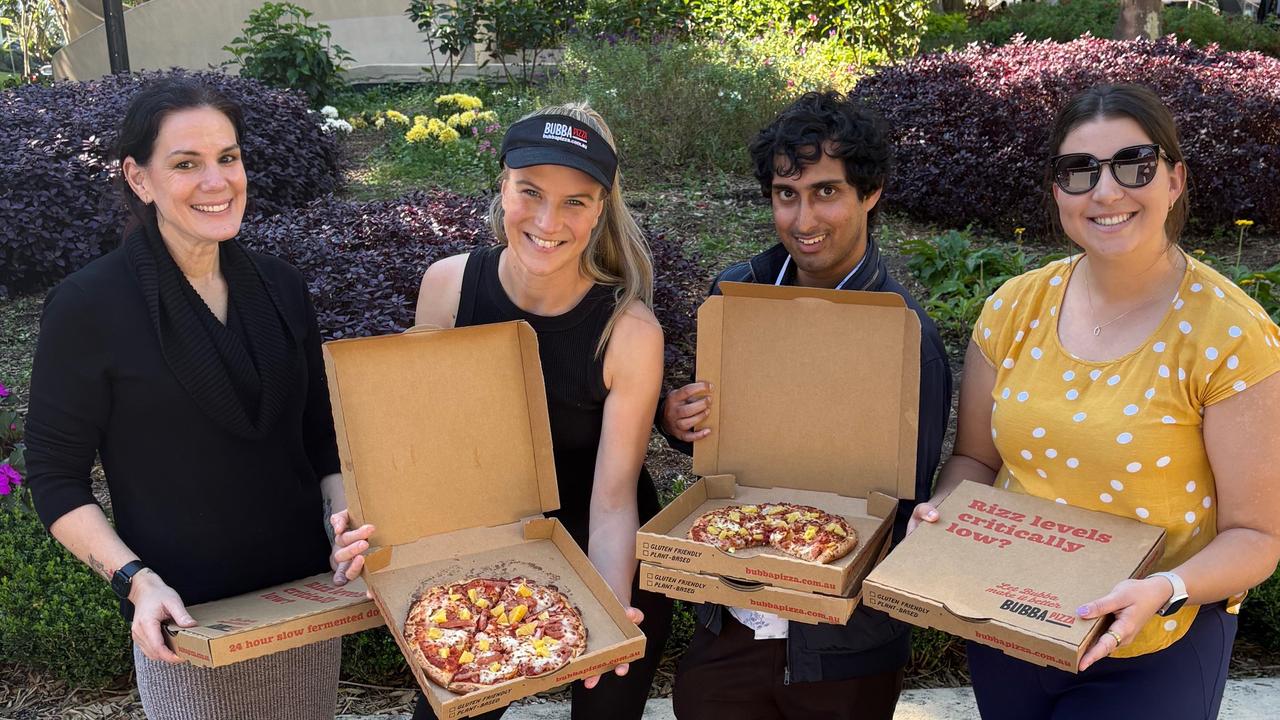Parliamentary inquiry finds no link between halal certification and terrorism and food prices increases
IT HAS been claimed halal certification funds terrorism, inflates prices and imposes sharia law on unsuspecting Aussies. Here’s what is really going on.

TAKE a wander down any supermarket isle and you will find a range of products featuring those official-looking paid-for ticks of approval.
And while these stamps let us know whether something is organic, genetically modified, Australian owned or grown, gluten-free or kosher, there is one certification that has created so much controversy it sparked a parliamentary inquiry: halal.
So what is it?
Well, it’s what it says on the packet. Something that has been officially recognised as halal allows Muslim consumers to buy the product.
Halal is an Arabic word that means permitted or lawful. And, in the context of food, it means it is fit for consumption for Muslims.
Halal foods don’t contain traces of alcohol, blood or pork (all forbidden in Islam), and halal applies to the way an animal is slaughtered. Animals are pre-stunned, but still alive when their throats are cut, so that the blood leaves their bodies.
WHY WAS THERE AN INQUIRY?
Despite halal certification being carried out in Australia for decades and generating about $8.5 billion in food exports a year, concerned citizens believe halal is a “religious tax” that hurts the hip pockets of everyday Australians and is a “conduit” for funding terrorism.
Groups such as Halal Choices argue people are entitled to know when they buy products if it has been halal certified in order to make “informed choices”.
They claim the certification is part of a wider agenda to “Islamify” Australia and force non-Muslims to pay fees that could find its way into terrorist organisations.
Their sentiments are shared by a number of politicians including Tasmanian independent senator Jacqui Lambie and South Australian Liberal senator Cory Bernardi.
Both have publicly stated they felt there were questions surrounding where the fees ended up.
Senator Bernardi was the driving force behind setting up the senate committee to investigate the food certification industry.

DOES HALAL FUND TERRORISM?
In its report, which was published in parliament this week, the committee found the practice of halal certification was misunderstood and the industry was under-regulated. This compromised the integrity of the system and allowed “the proliferation of questionable conduct by certifiers of questionable expertise and intent”, the report stated.
But the inquiry also found no links between halal certification and terrorist activity by extremists.
The committee, which received more than 1450 submissions, said while the inquiry was set up to investigate all food certification, the vast majority voiced concerns about, and opposition to, halal food certification.
“A number of submitters employed language and arguments which could be described as inflammatory, derogatory, and, in some cases, even obscene,” the committee said in the report. “In the interests of fostering an open dialogue and allowing submitters to have their opinions heard on what is clearly a contentious issue, the committee decided to accept and publish as many submissions as possible.
“Nonetheless, the committee is sensitive to the nature of some of the material in question, and some submissions were not published.”
Earlier this year, the ABC’s Four Corners program found some of Australia’s biggest halal certifiers, such as Australian Federation of Islamic Councils and the Islamic Co-ordinating Council of Victoria had contributed money towards the construction of a mosque and orphanage in Indonesia. However, the investigation found no evidence money was directed towards terrorist organisations.

WHERE DOES THE MONEY GO?
The committee said while Australians had a right to mistrust the industry in light of revelations products that were naturally halal, such as water and milk, were certified, there was no evidence the certifiers were “masquerading as a type of charity” to line their pockets or fund organisations that had strong links to criminal activity such as terrorism.
Both the Australian Transaction Reports and Analysis Centre (AUSTRAC) and the Australian Crime Commission said they could find no direct link between halal certification and terrorism.
Despite the evidence from both agencies, the report said a number of submitters remained unconvinced.
Senator Bernardi claimed the assessments from both agencies did not go far enough, arguing AUSTRAC admitted it did not have the power to track money overseas and that its 2014 report highlighted there was a “high risk” that charities and not-for-profit organisations could be used as channels for terrorism funding.

DOES HALAL DRIVE UP PRICES?
Anti-halal campaigners claim that, because certifiers are not legally required to disclose their fees, consumers have no way of knowing whether a price increase is a direct result of halal certification.
One submitter claimed that some fees were as “high as $27,000 per month ($324,000/year) and this obviously has to be passed on to the consumer, which is evident in the increased prices I am paying, which is not reflected in the price the primary producers are receiving for their goods”.
However the committee said while organic certification led to increased prices because of production costs and small quantities, the evidence it received regarding halal certification “overwhelmingly” suggested the practice didn’t increase prices.
It said because domestic and international food markets were competitive and price-conscious, it was very unlikely that Australian businesses would up their prices.
It also argued that if prices did increase because of halal certification, consumers would shop elsewhere.
DOES IT FORCE SHARIA LAW ON AUSTRALIANS?
According to the committee, many submitters said they were concerned religious certification imposed religion on consumers.
And while the committee examined all religious certifications, it noted that an overwhelming majority of submissions “were clearly primarily concerned with halal, not kosher, certification”.
In his submission, Australian Liberty Alliance senate candidate Bernard Gaynor claimed not only was halal certification viewed as a form of “religious tax” that spread Islam, it was viewed “as a way of imposing sharia law and Islamic religious beliefs on the majority of non-Muslim Australians every time they sit down to eat”.
Mr Gaynor claimed it also embedded “an Islamic religious ritual in the food-production process of meat products”.
But these claims were rejected by the committee.
The committee found that many of the submissions confused the term “halal” with the process of halal certification, saying certification was “purely a commercial exchange”.
“Certification does not require a religious ritual, nor does it in itself make food any more or any less halal. Products are either halal or they are not — certification merely verifies the fact,” the report stated.
“It cannot be asserted that the act of certification imposes religion on consumers. In the committee’s view more could be done to explain what halal certification entails — this would assist in clarifying prevailing misconceptions.”
Both the Australian Federation of Islamic Councils and the Executive Council of Australian Jewry in their submissions said no religious “ritual” or prayers are carried out on animals prior to slaughter.

IS THE INDUSTRY KOSHER? (PUN INTENDED)
While the committee could not find any evidence of links to terrorism, it did find some failings.
With regards to meat exports, the Department of Agriculture oversees the certification but the actual process is carried out by a registered certifier linked to a particular Islamic organisation.
One issue to arise from this system is importing countries will only recognise a small subset of authorised halal certifiers.
“As a consequence, meat exporters can often be required to obtain multiple halal certifications in order to export to more than one country,” the report stated.
The committee has made a number of recommendations, which include the government setting up a halal certification authority, which would monitor certifiers and ensure they are registered and compliant with a set of standards.
It has also recommended food manufacturers clearly label products that have received third-party certification and meat processors clearly label products sourced from animals subject to religious slaughter.



